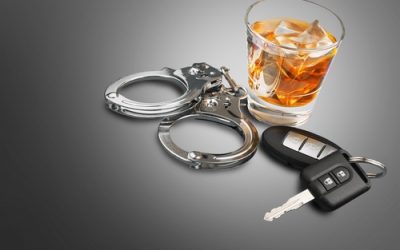According to the National Highway Transportation Safety Administration (NHTSA), in 2017, Connecticut had the highest percentage of drunk driving fatalities of all 50 states Not a statistic to be proud of, by any means. Let’s take a look at some additional drunk driving statistics in Connecticut and what the state is doing to reduce drunk driving.
- Out of 278 fatal crashes in 2017, 120, or 43% involved at least one driver who had a blood alcohol content (BAC) of .08 or more.
- Deaths involving drunk drivers increased from 2016 to 2017 by 3.5%.
- 12 of those alcohol-related fatalities involved people under the age of 21.
- 75% of drunk driving fatalities involved a driver with a blood alcohol content (BAC) of .15+ or more than twice the legal limit.
- The vast majority of drunk driving fatalities involved a repeat offender.
- Police arrested 8,228 people for Operating Under the Influence of alcohol in 2017.
While other states may have a higher number of drunk driving fatalities, that’s because they have a higher population and more miles of roads to travel than Connecticut. That 43% rate for Connecticut is much too high, and lawmakers and law enforcement are struggling to bring those numbers down.
Stiffer Penalties for Repeat Offenders
In April 2019, the state Senate Judiciary Committee voted to increase penalties for drivers who have multiple arrests for driving under the influence of drugs or alcohol. The Connecticut chapter of Mothers Against Drunk Driving (MADD) supported the measure.
SB 842 states those convicted for the second time can receive a maximum prison term of three years, an increase from the current two years. For a third conviction, the maximum prison term would increase from three years to five years. (As of this writing, no further action has been taken on SB 842.)
Connecticut’s Ignition Interlock Device Laws
In 2015, Connecticut lawmakers passed an act that made a number of changes affecting drunk drivers, license suspensions, and ignition interlock devices. In a big change, the act “reduces the license suspension period for all administrative per se violations to 45 days, but imposes ignition interlock requirements after the suspension period.” An administrative per se violation means you refused to take the chemical test (breath, blood, urine) after a OUI arrest, or you were convicted of OUI. So it extends the ignition interlock device requirement to offenders who were never actually convicted of OUI.
This means that Connecticut is an all-offender state when it comes to ignition interlock devices, which gives the state some of the toughest ignition interlock device requirements. The state of Connecticut knows that people who have an ignition interlock device (IID) installed in their vehicle(s) are prevented from drinking and driving.
About the Ignition Interlock Device
Each time you go to start up your car, you have to submit a breath sample. If the IID doesn’t detect any alcohol, you can start your car and go on about your way. However, if the device detects alcohol, it will prevent the car from starting. Pretty simple.
You should know that your ignition interlock device records the time and date of every test you take, whether that’s a startup test or rolling retest. It records whether you passed or failed the test, and what your BAC was if you failed the test. It records if you skipped a rolling retest. It also records if you tried to tamper with the device or remove it yourself. Failing a test, skipping a test, or tampering with the device are all considered program violations.
At every monthly maintenance visit, the technician transmits all of the information the device recorded to the DMV. And there are times when that may be done sooner, such as if you failed the test a certain number of times, or the device detected that you tried to tamper with it.
Will Increased IID Requirements and Stiffer Penalties Work?
It will be interesting to see another couple years down the road if the new ignition interlock device requirements for all drivers help reduce drunk driving overall, and help reduce the recidivism rate. As for stiffer penalties for repeat offenders, it remains to be seen if the full Senate will pass the bill, and where it goes from there.
Connecticut may want to consider adding a mandatory alcohol treatment component to the state OUI laws. Multiple studies show that while ignition interlock devices work to prevent drunk driving, combining their usage with alcohol treatment programs reduces recidivism, even after the devices are removed.
Ignition Interlock Device Installation Locations in Connecticut
ALCOLOCK is a state-approved vendor for IID installation, and we have several ignition interlock device installation locations in Connecticut. You can call one of our service centers directly, or call us at 866-700-9300 to schedule your installation. You can also use our contact form. We offer fast and affordable ignition interlock device installation and maintenance.



